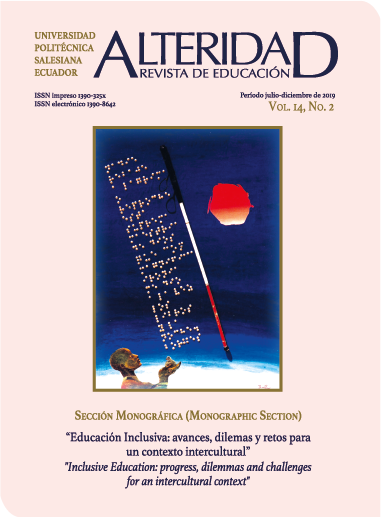Editorial
Main Article Content
Abstract
The universal declaration of human rights marks the course of the 20th century. Among them is the right to education. To guarantee it, and for it to be of quality, public policies that favor it from an inclusive and intercultural perspective are required, without discrimination or prejudice. In the contemporary context, the concepts of diversity and difference are broadened in relation to social inequalities and vulnerability. The paradigm of normality/abnormality is questioned and even rejected by the scientific community and by educational centers. Already in the 21st century, the paradigm of inclusion is strengthened and causes a rethinking of education in a globalized and plural world, all from human complexity and the learning possibilities that diversity offers. There are multiple experiences that show the consolidation of this educational model in different socio-educational contexts, with innovative and challenging proposals, which, in turn, pose dilemmas and an enriching debate about this process of educational transformation towards inclusion and interculturality. The present issue of the Journal «Alteridad» aims to deepen the construction of this new look towards diversity; analyze advances related to cultures, public policies and innovative practices for inclusion in education systems; make citizen participation visible for social empowerment and share stories of experiences from different perceptions and theoretical-methodological approaches concerning inclusive education in the international sphere. For this reason, regional and national studies and research projects are of great interest, as well as comparative analyzes between institutions or countries that highlight the dilemmas and challenges of inclusive education in an intercultural context.
Article Details
Section
Editorial
Authorship: The list of authors signing must include only those people who have contributed intellectually to the development of the work. Collaboration in the collection of data is not, by itself, a sufficient criterion of authorship. "Alteridad" declines any responsibility for possible conflicts arising from the authorship of the works that are published.
Copyright: The Salesian Polytechnic University preserves the copyrights of the published articles, and favors and allows their reuse under the Creative Commons Attribution-NonCommercial-ShareAlike 3.0 Ecuador license. They may be copied, used, disseminated, transmitted and publicly displayed, provided that: i) the authorship and the original source of their publication (journal, editorial and work URL) are cited; (Ii) are not used for commercial purposes; Iii) mention the existence and specifications of this license.
Copyright: The Salesian Polytechnic University preserves the copyrights of the published articles, and favors and allows their reuse under the Creative Commons Attribution-NonCommercial-ShareAlike 3.0 Ecuador license. They may be copied, used, disseminated, transmitted and publicly displayed, provided that: i) the authorship and the original source of their publication (journal, editorial and work URL) are cited; (Ii) are not used for commercial purposes; Iii) mention the existence and specifications of this license.

